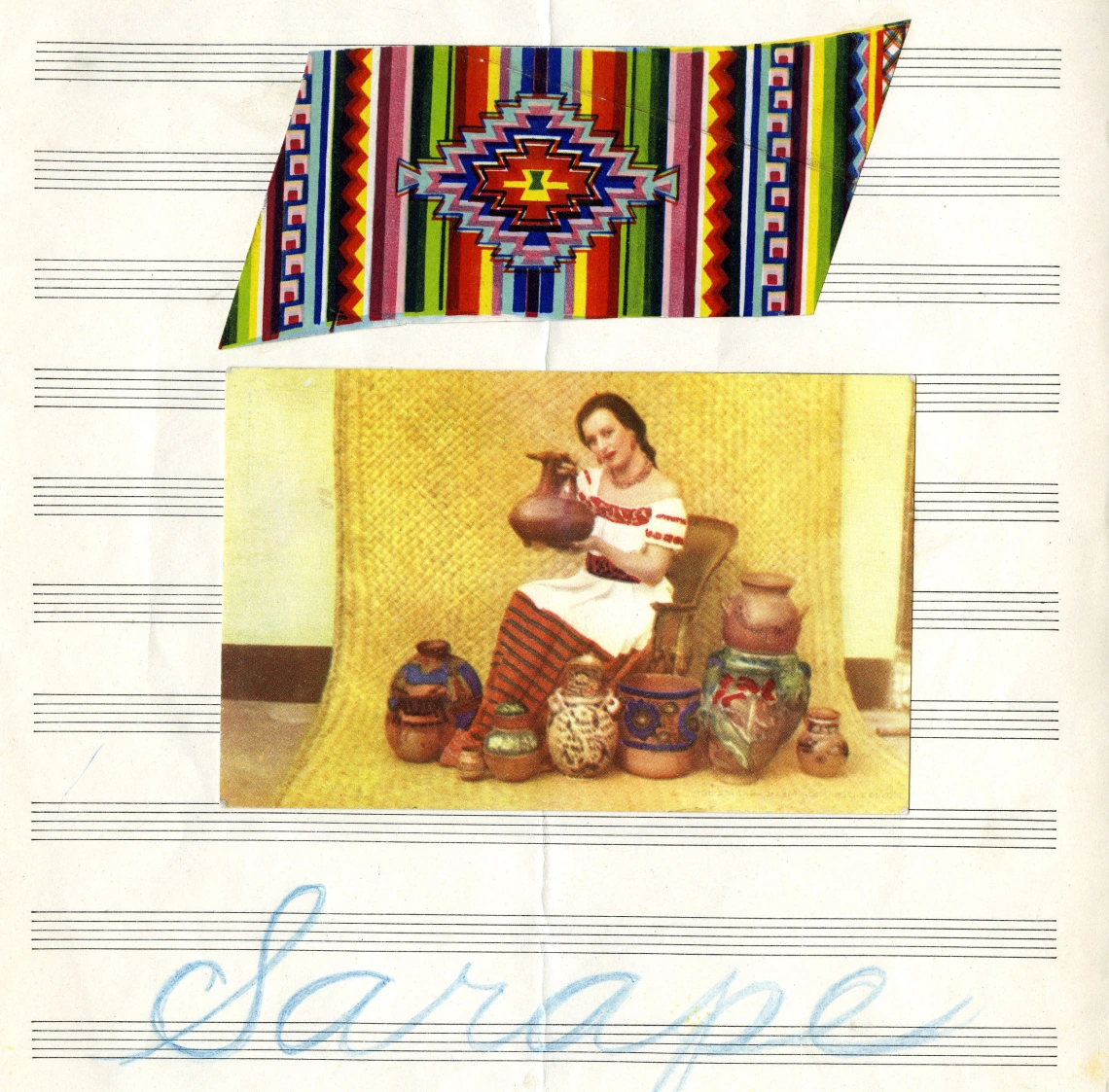Papers of L. Marguerite Collier

Collection area: Borderlands
Collection dates: 1884-1977 bulk (bulk 1935-1959)
This collection is comprised of research files gathered by L. Marguerite Collier. Materials include song and music books, sheet music, and books, programs, articles, and brochures on folk dances and music, primarily of Mexico; a folk drama; correspondence; outlines and notes for folk dance and posadas productions; choreography for specific dances; and photographs. These materials, dating chiefly from 1935 through 1959, reflect Collier's interest in Mexican folklore, especially folk dance and the tradition of las posadas, and document her work in reviving las posadasand establishing Mexican cultural awareness at Carrillo School. Materials have been organized into separate series relating to published works, folk music, folk dances and dramas, correspondence, posadas, Mexican Christmas traditions, handwritten music scores, books, and other works. The Southwest Folklore Center created user copies of a majority of the items within the collection. Patrons are asked to use the user copies of materials whenever possible due to the fragile nature of the items contained in the collection.
L. Marguerite Collier was born in Portland, Oregon, in 1893. She spent her childhood in California, and attended Los Angeles Normal School. She received her degree from the University of Arizona in 1920. She knew that she wanted to be a teacher from a very early age. Because of the strong musical background of her family, music seemed to be a natural choice. After teaching in rural California and then at a mining camp near Clifton, Arizona, she returned to Tucson and began teaching at Menlo Park School. In 1922 she was transferred to Mansfeld School, where she taught first and second grade. She became one of the original faculty members at Carrillo School when it opened in 1930, and taught music and first grade at Carrillo until her retirement in 1958.
Collier began a Mexican Folklore Club at Carrillo School in 1933, to encourage and renew interest in the music, art, and drama of Mexico, and to provide cultural affirmation for her students. In 1936 she revived the tradition of las posadas, a procession that retraces the steps of Mary and Joseph as they go from inn to inn seeking shelter for the birth of Jesus.
In 1975 the L. Marguerite Collier school on Bear Canyon Road was dedicated in her honor. Collier received wide recognition in the Tucson area for her work in promoting Mexican folklore traditions. She died in 1976.
A collection guide explains what's in a collection. New to using our collections? Learn how to use a collection guide.
Collection guideAccess this collection
Visit us in person to access materials from this collection. Our materials are one-of-a-kind and require special care, so they can’t be checked out or taken home.
How to cite
Learn how to cite and use materials from Special Collections in your research.
